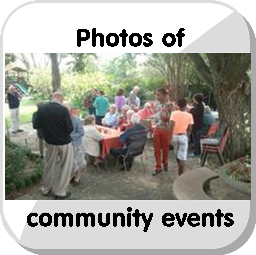|
by John-Peter Gernaat
Anyone who remembers the movie Yentl with Barbara Streisand may remember the great debates among the rabbinical scholars that occurred in studying the scriptures (and the Talmud, the commentary on the scriptures). This is because the Hebrew people have the possibility of interrogating the origins of the words of scripture and their various meanings and how these can give rise to different interpretations of the texts. We lose this in the translation of the Old Testament in that our modern languages often suggest one interpretation that is presented as the true meaning. A quick chronology of the Earth Cycle of Time as given to us by Rudolf Steiner is that the recapitulation of Old Saturn occurred in the Polarean stage, the recapitulation of Old Sun in the Hyperborean stage and the recapitulation of Old Moon in the Lemurian stage. It is during the Lemurian stage that YHWH (Yahweh) takes on the task of creating the Heavens and Earth (more accurately: the sky and earth in a form we might recognise as the unfolding of the earth and sky we know, as these were physical creations), YHWH, as an Elohim, is a being of the sun sphere who deliberately moves to the moon sphere for this task. Genesis 4 could be translated as: “I have personally made/created a man in the same way that YHWH has”. Eve has the same power to reproduce that YHWH has to create. Adam recognises this in the part of his full humanity that is Eve. Adam and Eve are a community in the Garden and yet Adam observes in the Eve part of the human condition something that is not in him (the part that is distinctly referred to as Adam): the ability to reproduce. This ability becomes more manifest once humanity leaves the Garden in that Eve cannot reproduce without being in direct connection with Adam. The first child of Eve is produced in a non-sexual way – Cain is a being of Eden. The second child is produced with Adam, and Abel is a being of the earth. When Cain presents his offering to YHWH it is an offering of the sun sphere which YHWH has left. The offering of Abel is of the moon sphere, it is an offering that interests YHWH. In order for Cain to be initiated into the earth, to become fully connected with the earth, he must spill blood. The story of Genesis 4 is therefore a story of the initiation of humanity from Eden into earth and as a consequence we do not get along with one another. The path of Cain is a hard path. It leads from living with nature to overcoming nature, controlling nature in the building of cities. The full redemption of nature will arise when we have moved into the ultimate city, the place of our future life: the New Jerusalem. Genesis 6 is another story of initiation. A more correct translation of what YHWH saw when he looked at the earth is: “And YHWH saw the exceedingly great depression in the heart of humans”. Humanity had fully arrived into the experience of an earthly life. Nature is not Eden, it invades and must always be kept at bay if we are to hold a space for our existence on earth. YHWH recognised one human being who could rise above this state of ‘depression’. YHWH takes the condition he recognises in Noah (Noah means ‘quiet resting place’) and creates something new within humanity: hope. This is the initiation stage of humanity in what Steiner calls the Atlantean stage. Noah is reborn out of a womb of water with all of his passions. Noah plants a vineyard and drinks of the wine. This experience opens up his constitution to connect with the “I”. In early post-Atlantean times alcohol helped humanity connect with the “I”, which was not yet experienced by the human being as being incorporated (felt and connected within the physical bodily organisation). Nowadays alcohol disconnects the human being from the “I”, as the “I” is incorporated in our physical constitution. Noah opens up in his constitution to connect with something new and in connecting with the “I” takes leadership into himself.
0 Comments
|
Article Archives
December 2021
2023 - January to December
2022 - January to December 2020 - January to December 2019 - January to December 2018 - January to December 2017 - January to December 2016 - January to December 2015 - January to December 2014 - November & December 2013 - July to December 2013 - January to June 2012 - April to December Send us your photos of community events.
Articles (prefaced by month number)
All
|

 RSS Feed
RSS Feed